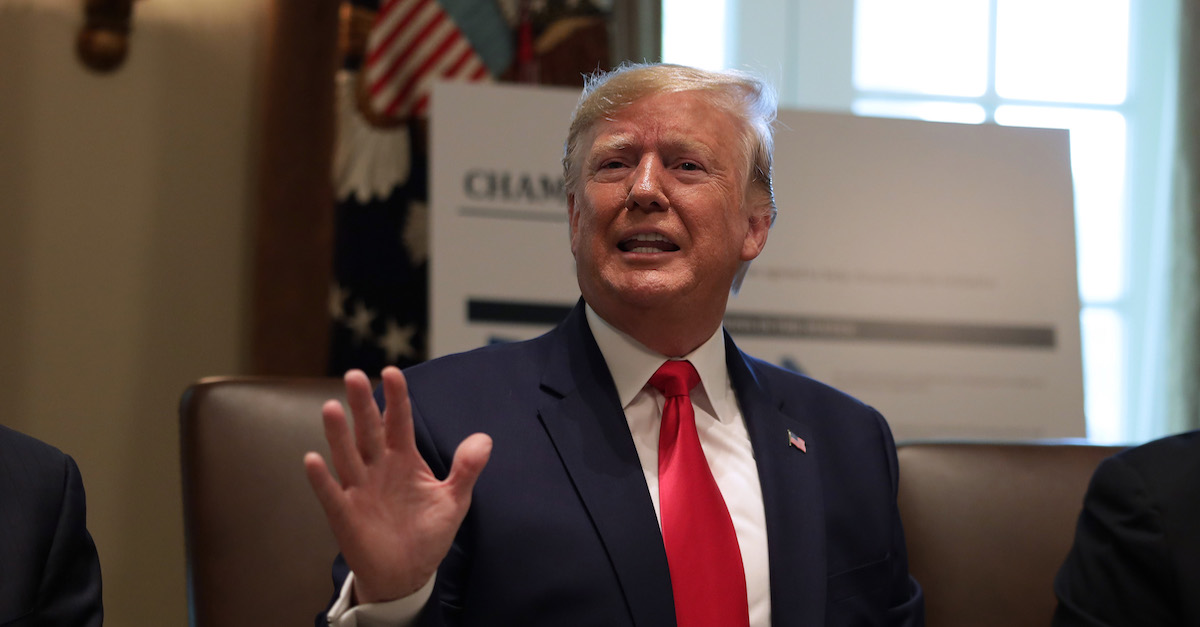
After two weeks of public testimony before the House Intelligence Committee, the impeachment inquiry into President Donald Trump will move to its next phase. The House Judiciary Committee will hold its first hearing on Wednesday. It will center on the testimony of four constitutional law scholars.
Chairman Jerrold Nadler (D-N.Y.) said the purpose of the hearing, entitled “The Impeachment Inquiry into President Donald J. Trump: Constitutional Grounds for Presidential Impeachment,” is to examine the “historical and constitutional basis of impeachment.”
The panel on Monday revealed the list of experts scheduled to testify on Wednesday, with three chosen by House Democrats and one selected by Republicans. Trump and his lawyers have opted not to participate.
Democrats plan to call Harvard Law professor Noah Feldman, University of North Carolina law professor Michael Gerhardt, and Stanford Law professor Pamela Karlan.
Republicans will call George Washington University law professor Jonathan Turley.
Noah Feldman
According to Harvard’s faculty website, Feldman specializes in constitutional studies, with a particular emphasis on the relationship between law and religion, free speech, constitutional design, and the history of legal theory.
In an October interview, Feldman said the president’s efforts to pressure Ukraine to investigate Joe Biden constituted impeachable abuses of power.
“On its face, for sure,” he responded when asked if the call was an impeachable offense. “And the fact that the president then went out and said, and you know what, China should also do this, that’s also impeachable. That’s also openly calling on a foreign state to help the president get re-elected, not to serve the interests of the United States as a Republican. That’s the textbook definition of abuse of power.”
Michael Gerhardt
In an op-ed for The Atlantic headlined “The Impeachment Inquiry Is Fully Legitimate,” Gerhardt was highly critical of President Trump and House Republicans who have called the proceedings a “sham” or a “witch hunt.”
“If you add up the nonsense that the president’s defenders have proliferated and his protestation that the Constitution allows him to do whatever he wants, their proposed result is disturbing: an executive who can shut down an impeachment inquiry and protect from disclosure anything done by anyone in the executive branch, and who is immune to criminal investigation and allowed to defy subpoenas,” Gerhardt wrote.
UNC Law’s faculty website notes that Gerhardt’s teachings and research focus on “constitutional conflicts between presidents and Congress.”
Pamela Karlan
Prior to joining the Stanford Law faculty, Karlan served as a commissioner on the California Fair Political Practices Commission, an assistant counsel and cooperating attorney for the NAACP Legal Defense Fund, and a Deputy Assistant Attorney General in the Civil Rights Division of the U.S. Department of Justice. While at the DOJ she was awarded the Attorney General’s Award for Exceptional Service.
She is one of the nation’s foremost experts on voting laws and co-authored several leading casebooks on constitutional law, constitutional litigation, and the law of democracy.
Jonathan Turley
According to George Washington University, Turley, in 1998 became the school’s youngest ever chaired professor. He is a nationally recognized legal scholar who has written extensively in areas ranging from constitutional law to legal theory to tort law.
He’s been a vocal critic of the impeachment proceedings against President Trump. In an op-ed for the Wall Street Journal last week, he wrote that the inquiry into the president “will be the shortest investigation producing the thinnest record of wrongdoing for the narrowest impeachment in history.”
Turley also recently penned an op-ed for USA Today that was critical of Republican Rep. Devin Nunes (R-Calif.).
[Image via Alex Wong/Getty Images]